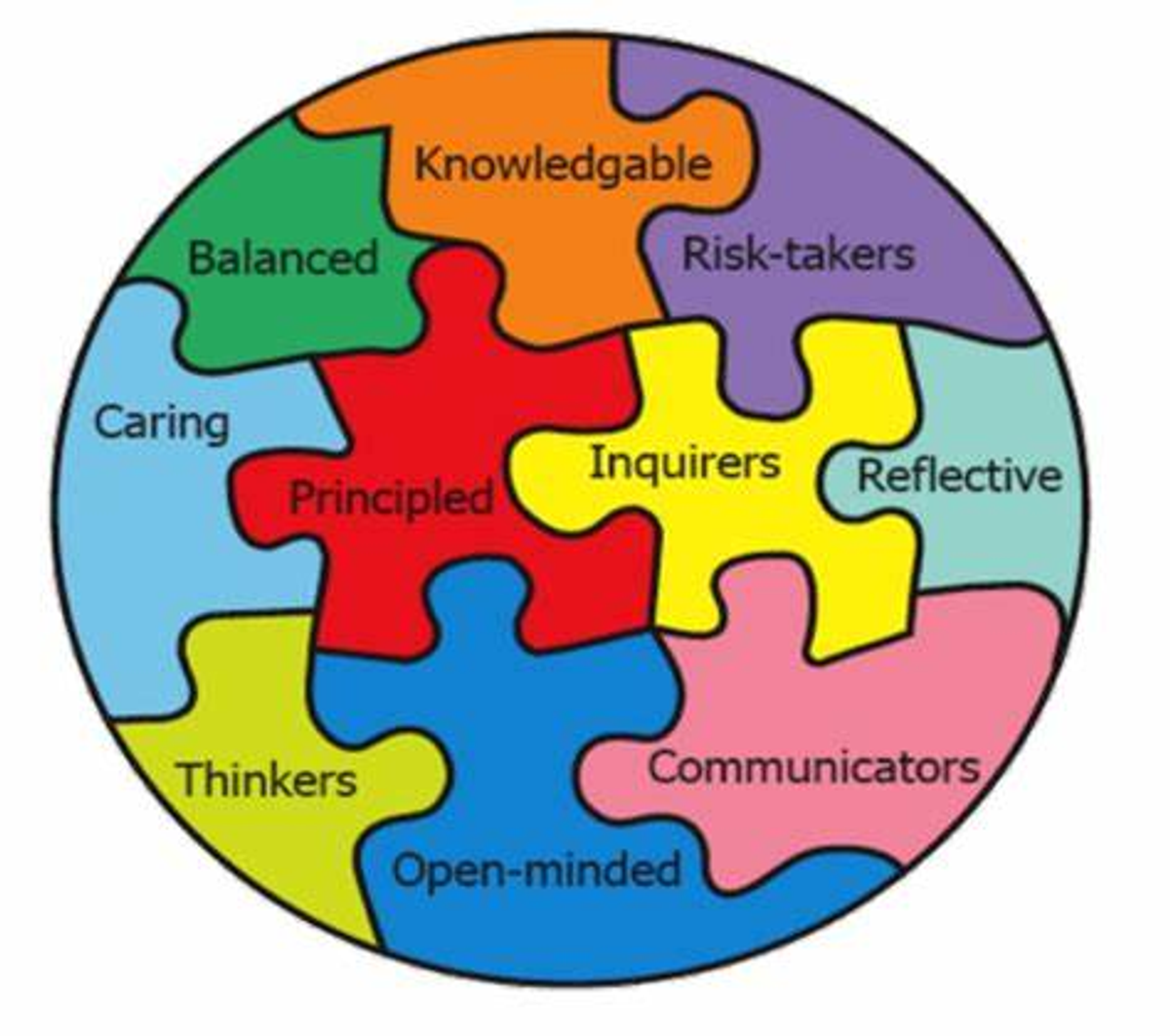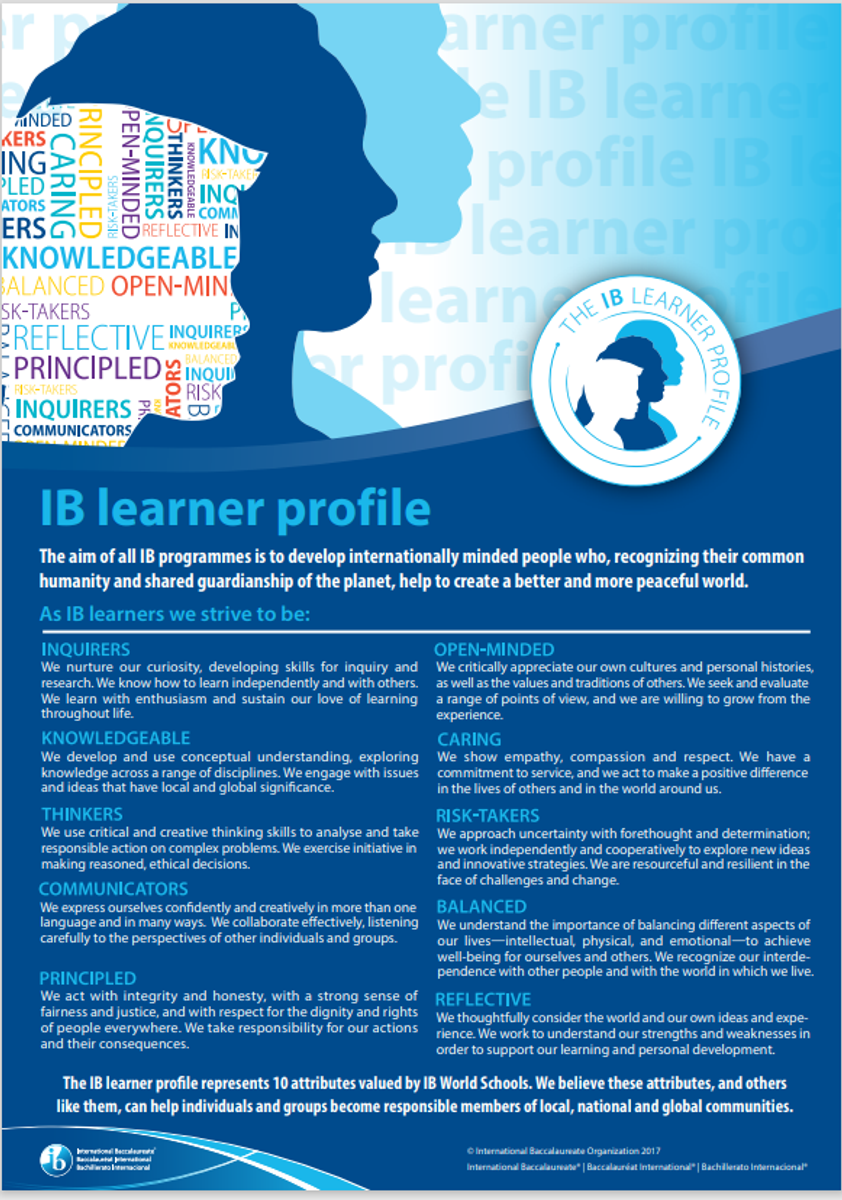PYP

What are the IB Learner Profile Attributes?
The Primary Years Programme (PYP) is a transdisciplinary curriculum framework that offers authentic learning experiences.
The PYP encourages students to learn to appreciate knowledge, conceptual understandings, skills, and personal attributes as a connected whole.
The IB Learner Profile represents 10 attributes that support our students becoming responsible members of our local, national, and global communities.
The learner profile attributes provide teachers, students, and parents with a common language with which to describe and reflect the following:
School culture – The attributes can be reflected in class agreements, playground agreements, collaborative planning arrangements, social protocols observed by the school such as welcome ceremonies. They become part of the language in wellbeing discussions and restorative practice.
Communications – The attributes can be used to describe learning and school wide initiatives through newsletters, our website and displays in learning spaces.
Feedback – students give and receive feedback on their learning using the language of the learner profile attributes. The attributes are also shared and celebrated in our reports and learning tasks.
Tools - The attributes can provide a tool for reflecting on local, national, and global opportunities and challenges. For example, students may be encouraged to consider different perspectives in a news story or be open-minded when discussing it.
You can support the learner profile attributes by understanding the ten attributes and using these words in conversations with your child.
The learner profile attribute students have focused on for February is Caring.
- We show empathy, compassion and respect. We act to make a positive difference in the lives of others and in the world around us
- How you can focus on this attribute at home
- Role model caring behaviour
- Model problem-solving in a constructive way that, what can see and hear
- Give some responsibility for caring for a pet if you have one
- Look at your local and wider community – what organisations care for people, animals, and the environment? How can they help?
- Role model empathy and talk about why we need to care. How would it feel to be in that person’s shoes and situation?
- Model kindness in the way we speak to each other
An interview with Year 1 Students
Mia
What does caring mean to you and why is it important?
Being caring means you have to be caring because otherwise it might make other people feel sad.
When was a time you were caring, or someone was caring to you?
I was caring when my friend tripped over and hurt themselves and I told the yard duty.
Alessia
What does caring mean to you and why is it important?
To be nice. It is important so other people don’t get sad.
When was a time you were caring, or someone was caring to you?
I was caring when I helped my friend with their work, and it made them happy.
Lucy
What does caring mean to you and why is it important?
I think being caring is good because it is important to not make other people's feelings to be upset. Because we don’t want tother people to be upset.
When was a time you were caring, or someone was caring to you?
Today my friend, she was getting surrounded by a wasp and she told the yard duty. Even if you do not know someone it is important to check on them at school.
(Archie then was caring and asked if Lucy was okay!)
Archie
What does caring mean to you and why is it important?
If somebody hurts themselves or they hurt themselves if you do not see if they are okay, they may not be your friend so you would not have any friends. It also makes you feel good when you are caring, so that is important. I feel good in my tummy.
When was a time you were caring, or someone was caring to you?
So, somebody on the oval that I did not know tripped, and I went and saw if they were okay.



